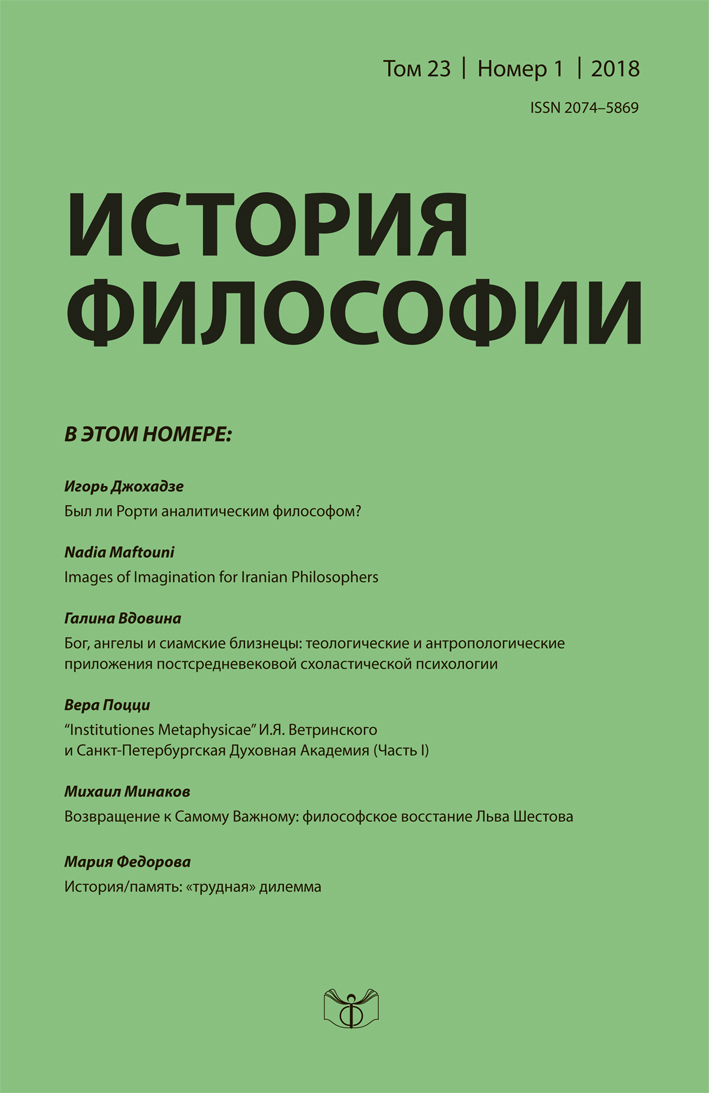Синкретизм в философии всеединства Владимира Соловьева и Плотина
Ключевые слова:
мистицизм, рационализм, неоплатонизм, методологический синкретизм, философия всеединства, богочеловечество, цельное знание, Единое, эманацияАннотация
В статье проводится сравнительный анализ философских идей Плотина и Вл. С. Соловьева. Центром интереса являются основные методологические принципы построения теории
«всеединства». В работе утверждается, что идея всеединства присутствует во всей истории
философского знания – от его истоков до настоящего времени. Краткий обзор философской
разработки идеи всеединства показывает его тесную связь с философским мистицизмом,
поскольку именно здесь господствует синкретическая форма построения концептуальных
систем. Обосновывается, что проблема построения сложных синкретических систем состоит в необходимости методологического синтеза рационального и мистического (интуитивного) путей познания. Для раскрытия специфики основ синкретических учений используются методы историко-философской реконструкции и компаративного анализа. В работе
осуществляется анализ ключевых понятий философии Плотина и Вл. Соловьева. Выявляется логическая связь теоретических изысканий Соловьева и неоплатонических построений в
области гносеологии, онтологии и антропологии. Отмечается, что существует преемственность между идеями Блага и Единого в философии Плотина и Соловьева. Делается вывод о
том, что философские взгляды Вл. Соловьева вырастают из уже сложившейся мистической
традиции, дополняют ее христианскую ветвь и направлены на ее осмысление и завершение
в духе времени.

